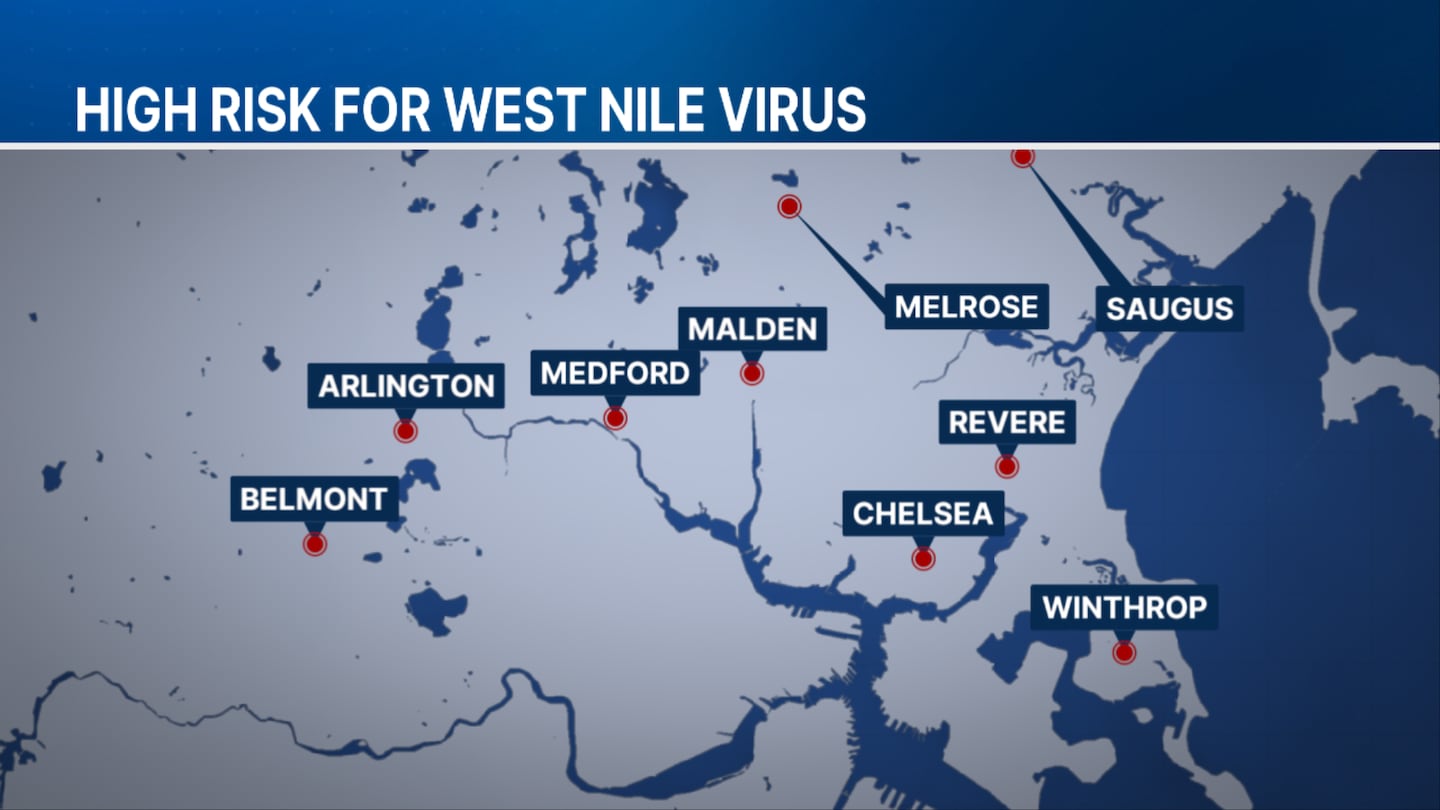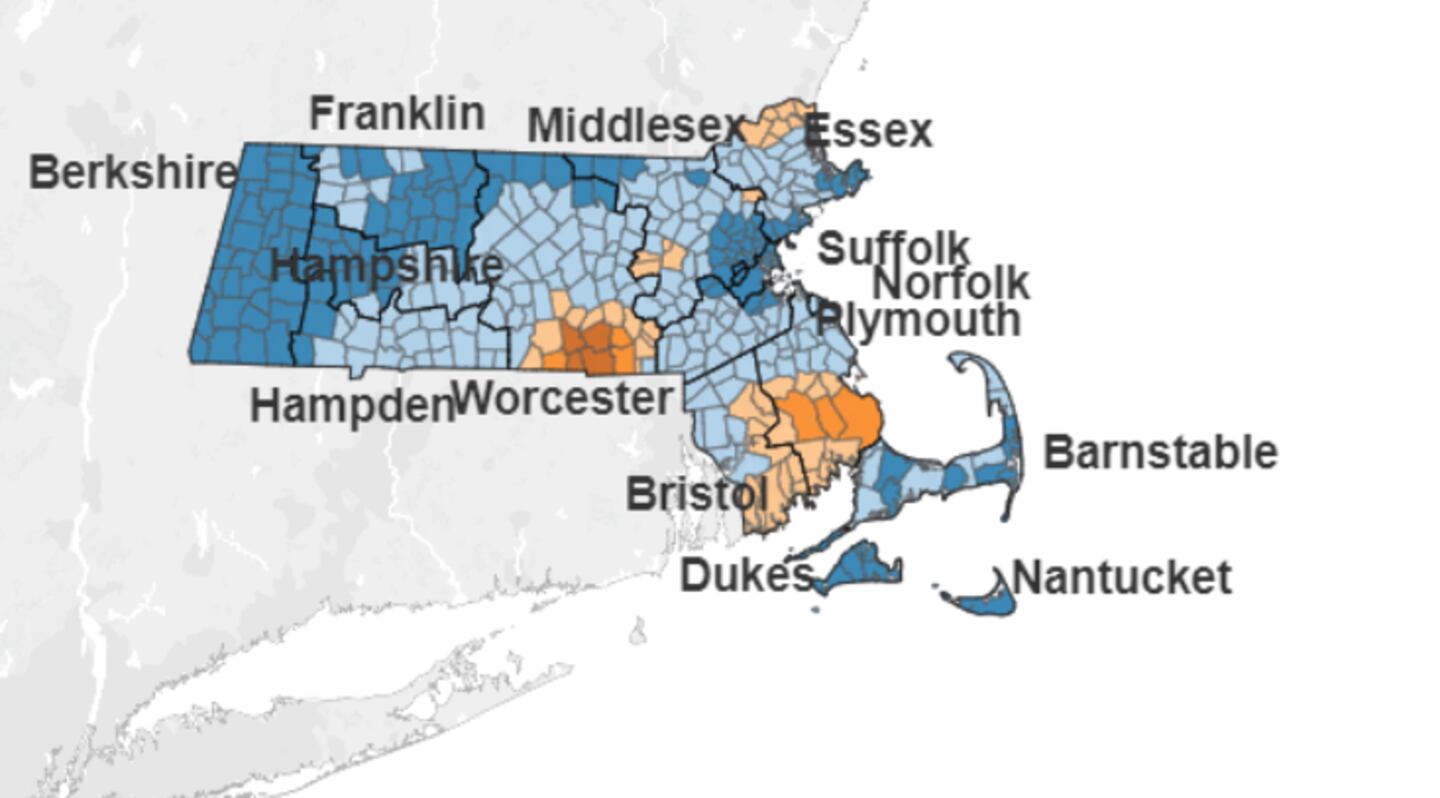BOSTON — The number of Massachusetts communities considered high risk for West Nile virus continues to climb, while serious Eastern Equine Encephalitis concerns also remain.
Officials have raised the alert for West Nile to high in 25 cities and towns, including Boston, according to the Massachusetts Department of Public Health’s latest risk and reporting map. This comes after two more Bay Staters came down with the disease earlier this week.
Six human cases of West Nile virus have been recorded in Massachusetts so far this year involving residents of Hampden, Middlesex, Suffolk, Norfolk, and Middlesex counties.
The current communities with an elevated chance of West Nile infection are as follows:
- Mattapoisett
- Marion
- Rochester
- East Bridgewater
- Whitman
- Abington
- Brockton
- Quincy
- Milton
- Boston
- Brookline
- Newton
- Watertown
- Belmont
- Arlington
- Medford
- Melrose
- Saugus
- Malden
- Revere
- Chelsea
- Everett
- Somerville
- Cambridge
- Winthrop
Saugus, Arlington, Belmont, Malden, Medford, Melrose, Chelsea, Revere, and Winthrop are new additions to the state’s high-risk list as of this week.
West Nile virus is most commonly spread through the bite of an infected mosquito. Symptoms include fever, headache, body aches, vomiting, diarrhea, or rash.
In addition to West Nile, there continues to be an ongoing threat of Eastern Equine Encephalitis across the region.
Oxford, Douglas, Sutton, and Webster are at critical risk for EEE, while Dudley, Uxbridge, Northbridge, Middleboro, Carver, and Plymouth are at high risk for mosquito-borne illness.
There have been two human cases of EEE in the state this year, one each in Worcester and Plymouth counties. Last week, Middleboro town officials announced the death of a horse that had been infected with the virus.
Due to the threat of EEE and West Nile, all outdoor school sports events in Middleboro will now end 30 minutes before sunset. Additionally, Plymouth North and South football games will not have night games to start the season as parks and fields in the area are closed from dusk until dawn.
Oxford officials also recently approved a recent curfew due to EEE risk.
Although rare, EEE is very serious. About 30% of people who develop severe cases of the disease die and many survivors have ongoing neurologic problems.
EEE symptoms can include fever, headache, vomiting, diarrhea, seizures, behavioral changes, and drowsiness.
There are no vaccines to prevent or medicines to treat West Nile and EEE in people.
Dr. Daniel Kuritzkes, infectious diseases chief at Brigham and Women’s Hospital, told Boston 25, “Unfortunately because we have no treatment, how quickly see you seek medical treatment isn’t really going to have an effect on the outcome.”
To avoid bites from infected mosquitos, people should adhere to the following CDC tips:
- Use insect repellent
- Wear long-sleeved shirts and pants
- Treat clothing and gear
Download the FREE Boston 25 News app for breaking news alerts.
Follow Boston 25 News on Facebook and Twitter. | Watch Boston 25 News NOW
©2024 Cox Media Group










